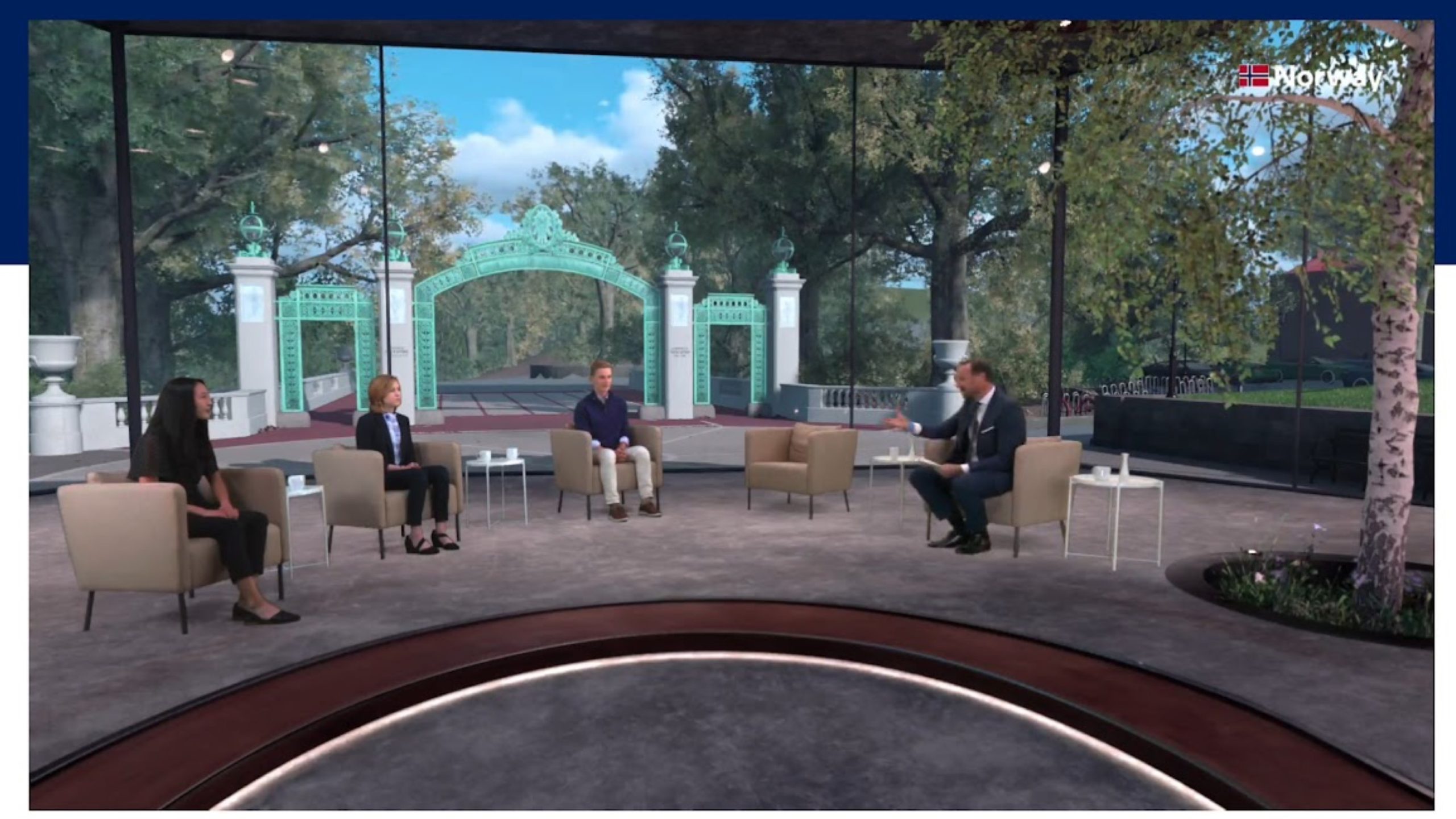Wisdom 2.0: The Place From Where We Act

By Victoria Chiang, MBA ’15
If you happen to be reading this, chances are you already care about sustainability and social impact. Chances are that you made a decision some time ago to care about issues beyond the financial bottom line and that you struggle with the challenges of how to enact change in the world. If you’re like me, as you’ve made decisions to pursue different projects, your optimism has inevitably come up against tough challenges; it can feel like cynics outnumber the change makers. In light of that, it’s such an enjoyable opportunity to get to step back and get in touch with our underlying motivations.
Recently, I had the opportunity to reconnect to the deeper place from which I am passionate about social impact, at the Wisdom 2.0 conference in San Francisco. In its sixth year, Wisdom 2.0 is a tricky thing to describe to someone who hasn’t attended. The conference website describes the event as “the intersection of wisdom and technology,” and indeed, there were speakers that ranged from Eckhart Tolle, author of The Power of Now, and Jon Kabat-Zinn, founding executive director the Center for Mindfulness in Medicine, Health Care, and Society at the University of Massachusetts Medical School, to Tony Hsieh, founder of Zappos, and Arianna Huffington, of The Huffington Post. But what exactly is that intersection, and what did it look like?
To start, the attendees and speakers at Wisdom 2.0 all seemed to agree, at least implicitly, that business is a powerful lever for change. Fred Kofman, author of Conscious Business, reminded listeners in a breakout session, “It’s nice to be a fireman, or a teacher, or a doctor, but what moves the world is business.” From within the business world, each of us can enact change.
Inspiring stories, like that of Vivienne Harr, a ten year old who has raised over $1M to end child slavery with Make A Stand Lemon-Aid, are proof of the powerful combination business and mindfulness can make. Jennifer Dulski, of Change.org, recounted anecdotes of her organization’s technology being used as a platform to harness the power of crowds. In a matter of weeks, individuals can reach out to their networks to gain support on social issues and engage with businesses. While not every petition is an outright “success,” Change.org has become a place for conversations, such as IKEA balancing the need to legally follow the laws of a country they operate in (Russia) with supporting gay rights (by offering an online version of their catalog including queer couples to Russian users).
Other stories served as cautionary tales, such as Crayola scrambling to respond to requests to start a marker recycling program after:
1. Ignoring initial petitions from elementary school students and,
2. Being one-upped by Dixon Ticonderoga (the company that creates #2 pencils), when it proactively began its own pencil-recycling program as a response to the petition.
In our new technology-enabled world, “power is transferring to everyday people,” and “companies that are responsible have the strongest brands, are attracting the best employees, and overall are the next set of winners,” Dulski observed.
The next set of winners, then, is not simply companies that turn the best profit. In fact, Arianna Huffington spent half an hour discussing ‘success,’ challenging the audience to think beyond money and power. The intersection of wisdom and technology is an awareness that business can and will be different – for the better.
During closing remarks, Wisdom 2.0 conference founder Soren Gordhamer joked, “When people ask me about what to expect at the conference, I usually say something very Zen like, “You’ll get out of it what you need to get out of it.’”
Joking aside, perhaps that was exactly the right answer. I initially attended Wisdom 2.0 because as a yoga teacher, I am passionate about mindful living. But over the course of the weekend, in between the guided meditation and yoga workshops, I experienced a deep sense of community around mindful business outside of my everyday MBA world. Thousands of attendees, from entrepreneurs to physicians to engineers, all came together to ask and learn how their daily actions in their respective fields could be more thoughtful and filled with awareness. Responsible business does not have to be limited to environmental or social fields like renewable energy or impact investing, but can be instead a powerful philosophy that we all come back to as a touchstone, in any career, helping us pay attention to our actions at a personal level.


